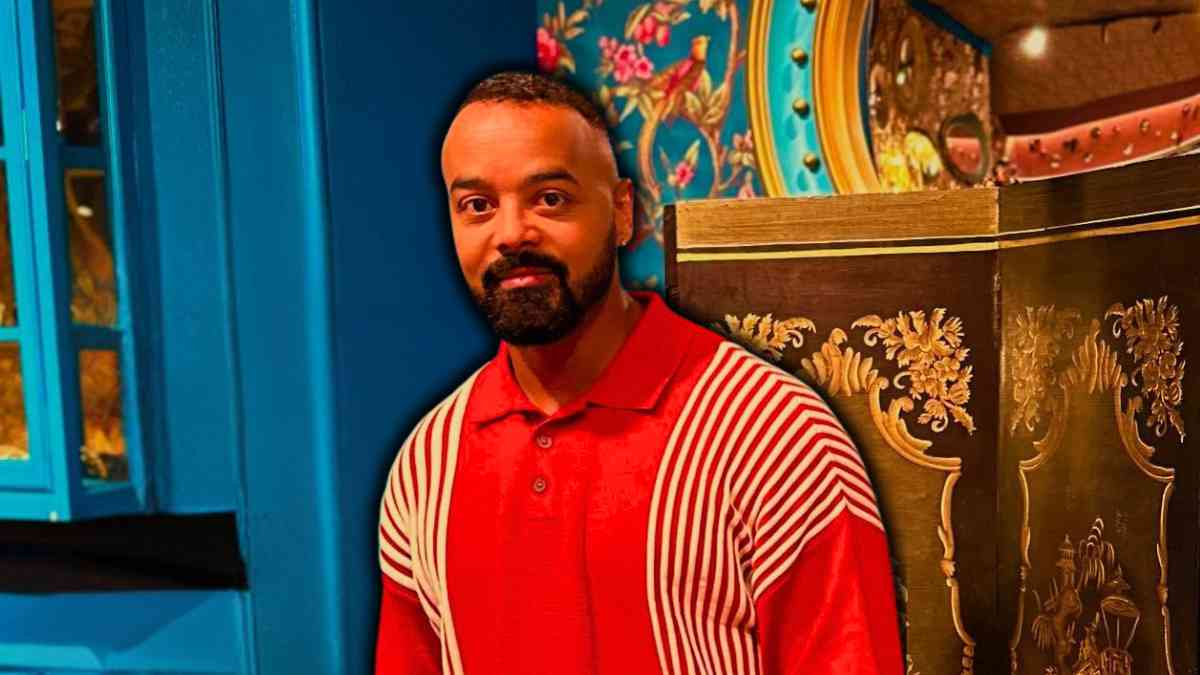Linton Stephens: Championing Diversity, Classical Music, and Cultural Change

Linton Stephens is a name that resonates across the corridors of classical music, education, and diversity advocacy. A British-Jamaican bassoonist, broadcaster, educator, and fierce proponent of inclusion, Stephens is not only known for his artistic prowess but also for the cultural impact he is making within an industry long criticised for its lack of representation. From performing on some of the UK’s most prestigious stages to hosting engaging programmes on BBC Radio 3, Stephens stands as a multifaceted force—dedicated to transforming the way classical music is experienced, perceived, and taught.
Early Life and Musical Awakening
Born and raised in Wirral, Merseyside, Linton Stephens didn’t grow up in a musical household, but he found his calling at an unlikely age. It was at 16 that he first picked up the bassoon—an age considered relatively late for someone who would eventually pursue a professional music career. However, his natural affinity for the instrument and determination to excel quickly distinguished him among his peers.
Stephens pursued his studies at the prestigious Royal Northern College of Music in Manchester. Later, he honed his craft internationally at the Hochschule für Musik Franz Liszt in Weimar, Germany. His academic training laid a strong technical foundation while giving him exposure to a variety of musical styles, mentors, and experiences that would shape his perspective not just as a performer, but also as a cultural commentator.
Performance Career and Musical Versatility
Linton Stephens’ performing credentials are nothing short of exceptional. As a bassoonist, he has worked with an impressive list of orchestras across the UK. These include the BBC Philharmonic, Royal Liverpool Philharmonic, Hallé Orchestra, English National Opera, and the Orchestra of the Age of Enlightenment, among others. However, it is his affiliation with the Chineke! Orchestra that has been especially meaningful.
The Chineke! Orchestra is Europe’s first majority Black and ethnically diverse orchestra, and Stephens holds a permanent chair within its woodwind section. This involvement aligns perfectly with his core values—using music as a medium to champion inclusion and cultural representation.
Whether interpreting works by Brahms or collaborating on contemporary compositions by living Black composers, Stephens brings an expressive depth to every performance. His musical versatility extends from Baroque masterpieces to modern experimental projects, and he is unafraid to use his bassoon as a vehicle for storytelling.
Broadcasting and Public Engagement
Beyond the concert hall, Linton Stephens has carved out a space for himself in the broadcasting world. As a familiar voice on BBC Radio 3, he hosts shows like Classical Fix, Music Matters, and Inside Music, blending classical music with conversations on culture, identity, and innovation.
Stephens is particularly gifted at making classical music accessible. His programmes are known for demystifying the art form, inviting new listeners in with approachable language and a deep sense of curiosity. His radio presence stands in contrast to the traditionally formal tone of classical broadcasting—he’s relatable, informed, and engaging, which has helped attract younger and more diverse audiences.
As a broadcaster, he also uses the airwaves to amplify underrepresented voices in music and introduce lesser-known composers and works. His curated playlists often celebrate the rich tapestry of global musical traditions, demonstrating that classical music is not the domain of a single cultural heritage.
Diversity and Inclusion Advocacy
Linton Stephens’ influence stretches far beyond performance and broadcasting. He is a leading figure in the ongoing movement to make classical music a more inclusive space. In 2020, he was elected Chair of the Musicians’ Union’s Equality, Diversity, and Inclusion Committee. In this role, he has actively shaped policies, recommendations, and public statements aimed at addressing systemic biases in the UK’s music industry.
He has consulted for major cultural institutions, from orchestras to publishers, helping them reimagine their diversity policies. Stephens speaks at conferences, sits on panels, and contributes to discussions about how classical music can shed its elitist image and embrace its full potential as a diverse and democratic art form.
His efforts are grounded in lived experience. As a Black classical musician in the UK, Stephens has navigated barriers that many of his white counterparts may never encounter. Rather than remain silent, he has turned those challenges into a platform for constructive dialogue and transformation.
Educational Contributions and Mentorship
Linton Stephens is deeply invested in music education. He serves as an Artistic Associate with the Multi-Story Orchestra, which brings live classical music to unexpected urban venues, often involving schoolchildren and community participants in the process. He is also an Artist-in-Residence with Ark Schools, working directly with students in some of the UK’s most underserved educational settings.
In addition, Stephens mentors students at the Royal Northern College of Music and is involved with the National Youth Orchestra of Great Britain. His teaching style is marked by empathy, accessibility, and a passion for unlocking each student’s potential—especially those who, like him, may not have followed the traditional route into music.
He also contributes to board-level discussions as a governor of Chetham’s School of Music and a trustee of the Orion Orchestra. These roles allow him to influence institutional culture and advocate for structural changes that create more opportunities for young musicians from all backgrounds.
Philosophies on Identity, Belonging, and Artistic Expression
One of the defining features of Stephens’ work is his commitment to authenticity. He often speaks about the tension between conforming to classical music’s traditional expectations and staying true to one’s own cultural identity. For Stephens, music is not just performance—it is an extension of self.
In interviews, he reflects on how Jamaican music, Black British culture, and family heritage have shaped his worldview. These influences are not things he hides—they are sources of strength that inform his phrasing, his programming choices, and his mission. By embracing these dimensions of his identity, Stephens has helped to expand the definition of what it means to be a classical musician in the 21st century.
Cultural Impact and Public Recognition
Linton Stephens is not yet a household name in the same way as some of the UK’s most prominent musical figures, but his cultural impact is undeniable. He represents a new wave of classical artists who are as concerned with social justice as they are with technical excellence.
His work has been featured in leading music publications, and he has appeared in documentaries that explore diversity and representation in the arts. Whether he is leading a masterclass, presenting on radio, or performing onstage, Stephens brings with him a clarity of purpose and a commitment to change.
The institutions that have worked with him—be it orchestras, schools, or media outlets—often highlight not just his talent, but his collaborative spirit and leadership. These qualities have made him a trusted figure within the music community and a role model for the next generation.
Future Endeavours and Legacy in the Making
Stephens continues to balance multiple roles, each contributing to a larger goal: making classical music a more inclusive, dynamic, and meaningful part of contemporary life. Whether through new compositions, educational initiatives, or policy reforms, he is likely to remain at the forefront of this movement for years to come.
He has expressed interest in curating festivals, developing new multimedia projects, and deepening his involvement in governance roles. Whatever direction his career takes, it is clear that he will continue to be a bridge between tradition and innovation, between the stage and the street, between music and justice.
Conclusion: Why Linton Stephens Matters
Linton Stephens is not merely a talented musician; he is a changemaker. In his bassoon playing, his broadcasting, and his activism, he embodies the power of music to reflect, challenge, and transform society. He is reshaping the narrative around who belongs in classical music and proving that cultural diversity is not a threat to tradition—it is the future of the art form.
As classical music grapples with its colonial past and exclusionary practices, figures like Stephens are vital. They bring a clarity of vision and a breadth of experience that can push the industry toward genuine transformation. In doing so, Linton Stephens is creating space—for new sounds, new audiences, and a more honest, inclusive culture of music.



